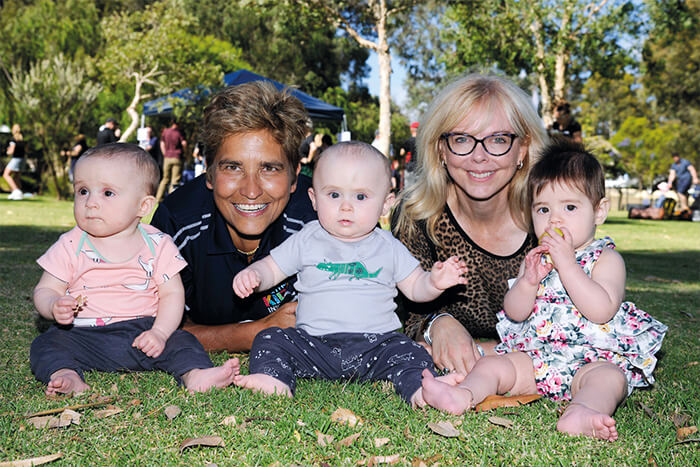Search
Research
Can lung disease be averted by focusing on early-life inequities?Shannon Simpson BMedSci (hons), PhD Head, Strong Beginnings Research, Co-head Foundations of Lung Disease 08 6319 1631 Shannon.simpson@thekids.org.au
Research
The influence of the early childhood education and care environment on young children’s physical activityThe PLAYCE Study instruments provide reliable measures of early childhood education and care physical activity environments
Research
The impact on service collaboration of co-location of early childhood services in tasmanian child and family centres: An ethnographic studyThere is a global trend towards place-based initiatives (PBIs) to break the cycle of disadvantage and promote positive child development. Co-location is a common element of these initiatives and is intended to deliver more coordinated services for families of young children. This paper examines how co-locating early childhood services (ECS) from health and education in Child and Family Centres (CFCs) has impacted collaboration between services.
Research
Associations Among Early Stimulation, Stunting, and Child Development in Four Countries in the East Asia–PacificThis study examined associations among preschool attendance, home learning activities, stunting status, and early child development using data from the validation study of the East Asia–Pacific Early Child Development Scales (EAP-ECDS).
Research
SMART Work Design: Accelerating the Diagnosis of Rare Diseases in the Western Australian Undiagnosed Diseases ProgramThe accurate and efficient diagnosis of rare diseases, many of which include congenital anomalies, depends largely on the specialists who diagnose them - including their ability to work alongside specialists from other fields and to take full advantage of cutting-edge precision medicine technologies and precision public health approaches.
Research
Methodological approach to exploring change in the Australia Early Development Instrument (AEDI): The estimation of a critical differenceThis report provides the technical details for the methodology calculated to determine "how big" a difference in the AEDI results between 2009 and 2012 is...

News & Events
ORIGINS Project shines light on Early Childhood DevelopmentA collaboration between The Kids Research Institute Australia and Joondalup Health Campus is poised to be a game-changer for early childhood development.
Research
Genome-wide association meta-analysis of childhood ADHD symptoms and diagnosis identifies new loci and potential effector genesWe performed a genome-wide association meta-analysis of 290,134 attention-deficit/hyperactivity disorder symptom measures of 70,953 unique individuals from multiple raters, ages and instruments.
Research
Nirsevimab immunisation of infants and respiratory syncytial virus (RSV)-associated hospitalisations, Western Australia, 2024: a population-based analysisChristopher Peter Hannah Blyth Richmond Moore MBBS (Hons) DCH FRACP FRCPA PhD MBBS MRCP(UK) FRACP OAM BSc (Hons) GradDipClinEpi PhD Centre Head,
Research
Immunogenicity and Safety of a 2 + 1 DTPa Priming Schedule in Australian Infants and the Impact of Maternally Derived Antibodies on Pertussis Antibody Responses up to 4 Years of AgeWe assessed the impact of maternally derived pertussis antibodies on infant responses to a 2 + 1 vaccine schedule (6 weeks, 12 weeks, and 12 months). Infants with baseline antibodies showed lower IgG responses following the primary vaccination series, but this did not impair booster responses at 4 years of age.
